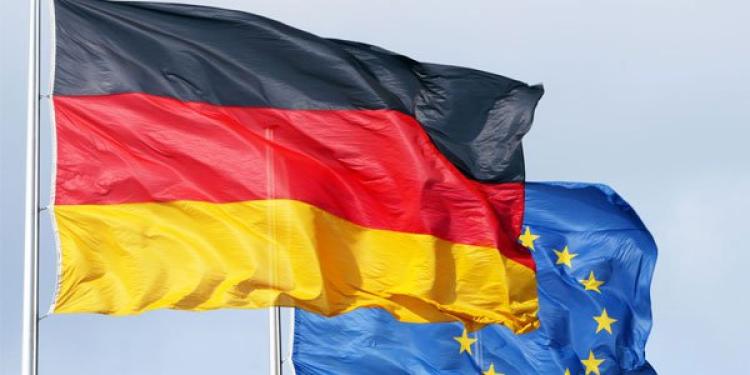German Efficiency? Not in Online Gambling
Posted: February 20, 2014
Updated: October 4, 2017

18 months after promising to issue sportsbetting license, the German bureaucracy has barely moved.
Germany, the “superstar of Europe” has built a reputation on a productive economy, efficient social system, and effective government. One area in which it hasn’t been very successful is regulating the gambling industry. Dysfunctional bureaucracy, confusing procedures and the lack of clear requirements have made a mess of the country’s quest for a legal sportsbetting market.
The twelve federal states of Germany signed a new interstate treaty in 2012. Among other things, it gave the German Gambling Authority to power to issue licenses to online sportsbooks for the first time. The regulator announced a plan to issue 20 licenses, with a reported 150 firms in competition. 18 months later no licenses have been issued, and no one knows when they will be.
As it became increasingly difficult for OddBet to compete with foreign competition some voices in business and government began clamoring for the state to introduce a licensing system. This would allow domestic bookies to legally serve German bettors, preventing money and tax revenue from flying out of the country. The Global Gaming and Betting Consultants estimated that a legal nationwide online betting market could be worth EUR 425 million annually.
In addition to this, Oddbet’s monopoly drew the scorn of the European Commission (EC) and European Court of Justice (ECJ). The ECJ issued a ruling in 2010 calling Germany’s gaming monopoly a violation of Article 56 of the Treaty on the Functioning of the European Union, which protects the free movement of services across national borders.
Despite these misgivings, bookmakers were ecstatic about the opportunity to serve bettors legally. BetVictor already had a license to accept bets in the state of Schleiswig-Holstein and was confident that it would receive one to operate on the federal level as well. As time passed and the process seemed to be going nowhere, optimism faded.
After reviewing initial applications last spring the gaming regulator published its short list of candidates in November. Of the 150 applicants, 41 made it to the second round. It was hoped that licenses would be issued in early 2014. However, numerous legal disputes and regulatory inconsistencies have put the process on hold, and currently no applicant has received approval to serve bettors.
Why? The whole process has been messy and confusing and on the whole not very German. Many have claimed that the gaming authority has never clearly laid out the correct procedures or the criteria for successful applications. When you have 150 applicants for 20 spots, there are bound to be many unhappy voices. But almost everyone involved has legitimate complaints about the behavior of the gaming authority. The European Gaming and Betting Association released the following criticism of the entire process:
“It has failed to provide candidates with clear, transparent and reliable information concerning the tender criteria to be used… This has led to numerous lawsuits by providers and several postponements of license awards by the administration… the German approach is simply incomprehensible against the background of successful European regulations.”
For its part, this time the gaming authority handed each rejected applicant a detailed report on why they didn’t meet requirements. Sportsbooks have their figures crossed that this spring the gaming authority may actually reach a decision.
Even if the good folks put down their schnitzels and do their jobs, the first licenses will not be issued until this summer at the earliest. That means that German bettors won’t be able to legally place bets with anyone other than Oddbet until late in the year, more than two years past the signing of the treaty. One wonders if Germany truly is a picture of efficiency.
Germany, the “superstar of Europe” has built a reputation on a productive economy, efficient social system, and effective government. One area in which it hasn’t been very successful is regulating the gambling industry. Dysfunctional bureaucracy, confusing procedures and the lack of clear requirements have made a mess of the country’s quest for a legal sportsbetting market.
The twelve federal states of Germany signed a new interstate treaty in 2012. Among other things, it gave the German Gambling Authority to power to issue licenses to online sportsbooks for the first time. The regulator announced a plan to issue 20 licenses, with a reported 150 firms in competition. 18 months later no licenses have been issued, and no one knows when they will be.
Background
Until recently, the market for online sportsbooks in Germany was controlled by a state monopoly firm, OddBet. Despite it being the only legal provider of online betting services in the country, no system to protect the market from foreign competition existed; Germany was something of a “Wild West” for bookies. Foreign providers offering better odds and free from paying German taxes quickly became popular. The Gibraltar-based Bwin became the bookie of choice for many Germans.As it became increasingly difficult for OddBet to compete with foreign competition some voices in business and government began clamoring for the state to introduce a licensing system. This would allow domestic bookies to legally serve German bettors, preventing money and tax revenue from flying out of the country. The Global Gaming and Betting Consultants estimated that a legal nationwide online betting market could be worth EUR 425 million annually.
In addition to this, Oddbet’s monopoly drew the scorn of the European Commission (EC) and European Court of Justice (ECJ). The ECJ issued a ruling in 2010 calling Germany’s gaming monopoly a violation of Article 56 of the Treaty on the Functioning of the European Union, which protects the free movement of services across national borders.
Optimism dashed after 2012 treaty
German gambling laws changed when the much lauded Interstate Treaty on Gambling came into force in July of 2012. The gaming authority announced that it would issue 20 licenses good for a period of 7 years. Most industry voices felt that 20 licenses were too few for the most populous country in Europe, and the treaty did not cover online poker or casino sites, which still cannot receive licenses.Despite these misgivings, bookmakers were ecstatic about the opportunity to serve bettors legally. BetVictor already had a license to accept bets in the state of Schleiswig-Holstein and was confident that it would receive one to operate on the federal level as well. As time passed and the process seemed to be going nowhere, optimism faded.
The German bureaucratic machine grinds to a halt
• Germany revised its gambling laws in 2012 and announced it would issue 20 sportsbetting licensesGermany has a world famous reputation for doing things efficiently and effectively. When the gaming authority announced the new system for internet betting in Germany, most of us expected an immediate and crisp review of each application following the prompt issuance of licenses. What happened has been very far from that.
• 18 months later not one license has been issued
• Applicants have complained that the procedures and criteria are not clearly defined
After reviewing initial applications last spring the gaming regulator published its short list of candidates in November. Of the 150 applicants, 41 made it to the second round. It was hoped that licenses would be issued in early 2014. However, numerous legal disputes and regulatory inconsistencies have put the process on hold, and currently no applicant has received approval to serve bettors.
Why? The whole process has been messy and confusing and on the whole not very German. Many have claimed that the gaming authority has never clearly laid out the correct procedures or the criteria for successful applications. When you have 150 applicants for 20 spots, there are bound to be many unhappy voices. But almost everyone involved has legitimate complaints about the behavior of the gaming authority. The European Gaming and Betting Association released the following criticism of the entire process:
“It has failed to provide candidates with clear, transparent and reliable information concerning the tender criteria to be used… This has led to numerous lawsuits by providers and several postponements of license awards by the administration… the German approach is simply incomprehensible against the background of successful European regulations.”
Crawling forward, maybe
Following the review of shortlisted candidates last November the regulator announced that not a single applicant met the stringent (and apparently mysterious) requirements. This seems contradictory, as the 41 companies on the shortlist made it to the second round, meaning that they must have done something right. It announced that another round of reviews would be necessary, and gave interested parties until March 14, 2014 to reapply.For its part, this time the gaming authority handed each rejected applicant a detailed report on why they didn’t meet requirements. Sportsbooks have their figures crossed that this spring the gaming authority may actually reach a decision.
Even if the good folks put down their schnitzels and do their jobs, the first licenses will not be issued until this summer at the earliest. That means that German bettors won’t be able to legally place bets with anyone other than Oddbet until late in the year, more than two years past the signing of the treaty. One wonders if Germany truly is a picture of efficiency.
Related content
Subscribe
0 Comments












